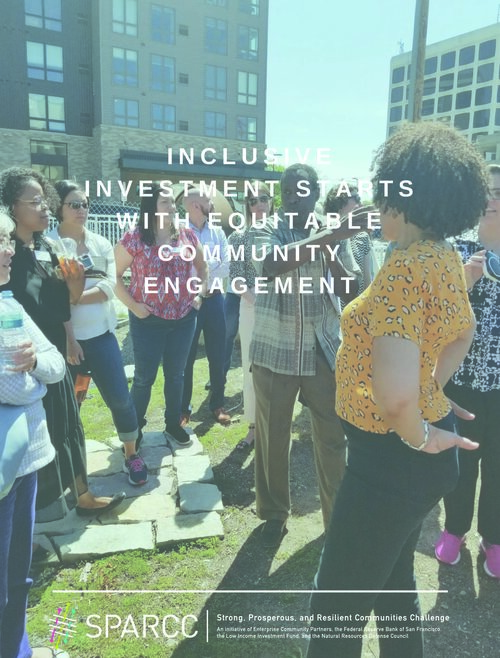Public planning processes have evolved in recent years from being a one-time, mostly one-way effort to inform the community about a proposed investment or policy change, i.e., a new highway project or a zoning change, to more community involvement to shape and design projects and policies.
Equitable community engagement practices can take this even further to create deeper two-way learning and conversation between public agencies and community representatives.
Read the report here.
This report, written with the input of various SPARCC partners, offers a set of lessons learned and specific strategies public agencies and others can deploy to resource local organizations and engage traditionally underrepresented community members as partners to shape community development policies, plans and investments.
One such example is in Chicago, with Elevated Chicago – the SPARCC collaborative – in its work in the new administration of Mayor Lori Lightfoot. Roberto Requejo, its program director, described it this way:
“As our community-based partners developed their bricks-and-mortar priorities for equitable development near transit hubs, we asked them to also identify challenges in community engagement and solutions to them. What started as an informal list of issues and suggestions ended up becoming a formal paper on Principles and Recommendations for Community Engagement co-created by 20+ civic and community leaders and recently adopted by Mayor Lori Lightfoot’s Office and the Chicago Department of Public Health. The power of what our community-based partners could do with SPARCC support was astounding and will lead to real change in a system rife with inequities that hurt some communities, in particular, and the fabric of the city as a whole.”
-Roberto Requejo, Elevated Chicago
